On various websites and forums, there are reports of PPIs (proton-pump inhibitors) causing worse reflux than before using them (i.e. pre-PPI baseline).
Additionally, many alternative health practitioners (e.g. naturopaths, chiropractors, etc.) promote the idea that PPIs always worsen reflux – and many people legitimately believe this to be accurate.
The truth is that while a rare minority of individuals might experience a worsening of reflux on PPIs – most individuals will derive therapeutic benefit from PPIs if a reflux condition (e.g. acid reflux or GERD) is the correct diagnosis.
PPI worsening reflux (Anecdotes)
Included below are various anecdotes from PPI users who claim that PPI therapy worsened reflux.
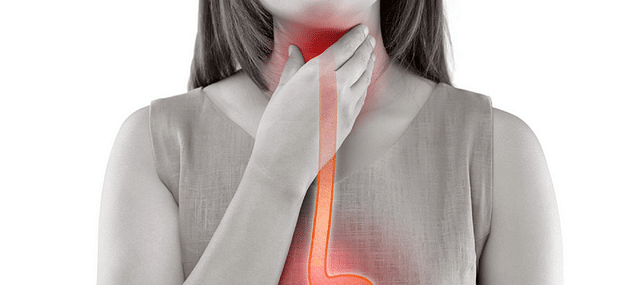
Understand that the specific reason(s) for worsening of reflux while using PPIs [in these cases] remains unclear.
We do NOT know: medical history, specific GI evaluations received/diagnoses, other medications/substances being used, diet/lifestyle, and/or whether PPIs are being used properly.
Therefore, we should NOT automatically assume that PPIs objectively worsened reflux in all of these cases despite subjective reports of worsening.
Anecdotes are not data and many “subjective” reports are “objectively” inaccurate.
Anecdote #1: Whenever I take PPIs for a long duration (1-2 months) my reflux worsens almost immediately from the start. GI doctors don’t seem to have an explanation. Thought possibly was low in acid but got tested and acid level was within a normal range. Acidic substances like ACV also worsened the reflux.
Anecdote #2: PPIs made me feel worse. I ended up eating really carefully and making lifestyle changes. Reflux improved in ~6 months.
Anecdote #3: GERD worsened on PPIs. All doctors continued pushing PPIs. Had such intense heartburn from PPIs that it would trigger vomiting or extreme burning pain in chest/throat. I feel better off of PPIs and use Gaviscon at night.
Anecdote #4: Anytime I take PPIs for more than 3 days in a row my acid gets “out of control.” Takes about 5 days of no PPI to get my GERD back under control.
Anecdote #5: Was on PPIs for about 10 days and GERD worsened significantly. Developed a sour taste in my mouth. Despite being 6 days off of PPIs, the sour taste in my mouth still lingers.
Anecdote #6: PPIs triggered bad bloating and excessive burping – both of which worsened reflux.
Anecdote #7: Took pantoprazole for 13 months (40 mg/day) and eventually stopped. Felt immediately better after stopping and reflux went away for a while. It seems to work for a few weeks then it stops and slowly makes it worse.
Anecdote #8: Felt worse on PPIs and had constant urge to burp with trapped air inside throat and stomach.
Anecdote #9: Omeprazole (20 mg/day) for a month. Seemed to help significantly at first, but interfered with digestion and caused constipation and bloating. Stopped them for a few days and digestion has improved significantly.
Anecdote #10: Omeprazole reduced many symptoms (e.g. shortness of breath, chest tightness, belching, etc.) but significantly increased acid in throat.
PPIs worsening reflux vs. reflux worsening on PPIs
Most people are unable to distinguish between: (A) PPIs worsening reflux vs. (B) reflux worsening while using PPIs (from factors unrelated to the PPI).
If reflux worsens while using PPIs – many automatically assume that it must be the PPI causing the reflux to worsen.
While there’s a small chance PPIs could be worsening reflux – it’s far more likely that the reflux is worsening irrespective of the PPI use.
To be clear, there is a massive difference between PPIs causing reflux to worsen and reflux worsening while using PPIs.
PPIs causing worse reflux
In this case, PPIs are the primary cause of worsening reflux.
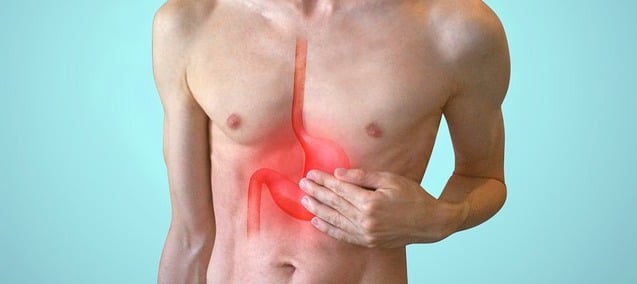
This is extremely unlikely and would need to be confirmed with endoscopy and pH monitoring by a gastroenterologist.
The gastroenterologist could compare pH and reflux episodes pre-PPI (baseline) and pH and reflux episodes while properly using adequately-dosed PPIs (treatment) – and objectively determine whether PPIs are culpable for worsening reflux.
How PPIs worsen reflux in some cases… (Hypotheses)
Included below are the ways I believe that PPIs could, in a minority of individuals, worsen reflux conditions.
Users should NOT automatically assume that they are experiencing any of the possibilities listed below without diagnostic confirmation from a medical doctor (preferably a gastroenterologist) – as self-diagnosis is notoriously unreliable.
Non-acid reflux (?)
Nonacid reflux is defined as reflux of gastric contents with a pH >4.0 (i.e. above the threshold used by conventional pH monitoring to identify acid reflux).
If a PPI is administered, it’s possible (though unlikely) that this could worsen non-acid reflux.
Interestingly, PPIs don’t decrease the absolute number of reflux episodes – they merely shift the reflux from being “acid” to “non-acid” (which reduces burning sensation).
Altered GI function
PPIs are thought to impair hydrolytic digestion via inhibition of acid-dependent peptic activity – resulting in delayed gastric emptying of solids. (R)
Perhaps this is why constipation, abdominal pain, and nausea are reported as common side effects.
If delayed gastric emptying occurs on a consistent basis and/or to a significant degree – it might worsen reflux.
Gut dysbiosis
Research by Hojo et al. (2018) suggests that PPI use causes gut dysbiosis. (R)
Specifically, 4-weeks and 8-weeks after PPI treatment: Lactobacillus species and Streptococcus species significantly increased – relative to pre-treatment baseline.
Interestingly, dysbiosis has been suggested to potentially cause/worsen reflux disease. (R)
Malabsorption of vitamins/minerals
This can have widespread/systemic implications (e.g. brain, GI tract, etc.) – depending on the specific vitamin/mineral deficiencies and respective magnitudes.
This would generally occur after long-term PPI use – not over a short-term (e.g. 2 weeks).
Bacterial overgrowth (SIBO)
Might occur in a subset of persons while using PPIs.
Could potentially exacerbate preexisting reflux depending on the severity and specific type of bacteria.
Su et al. (2018): PPIs moderately increase risk of SIBO. (R)
SIBO may increase the severity/frequency of preexisting reflux.
Nocebo effect
Negative outcomes or adverse reactions occur in response to PPI therapy due to expectations or perceptions associated with PPIs.
For example, someone might read about the dangers of PPIs on Reddit and subsequently experience a barrage of negative effects (including worsening of reflux) due to a combination of anxiety, negative emotion, and expectation.
Neuropsychiatric effects
PPIs may affect the brain directly via modulation of homeostatic neurochemistry and/or indirectly via modulation of the gut (which affects the brain via the gut-brain axis).
Additionally, interference with absorption of certain vitamins/minerals may indirectly affect neurochemistry.
PPIs may increase risk of depression, anxiety, and other neuropsychiatric conditions that could then increase the frequency/severity of reflux.
Anxiety about side effects (?)
A subset of individuals may be worried about side effects associated with PPIs and reluctantly administer the PPIs each day.
However, these individuals may become highly anxious due to reading articles about things like kidney damage or vitamin/mineral deficiencies from long-term PPI usage and start to experience anxiety attacks.
These anxiety attacks may significantly increase both stomach acid and reflux episodes – and this may have nothing to do with the PPI directly. (This is not necessarily the same as nocebo effect.)
PPI tolerance (?)
Probably NOT a legitimate phenomenon.
Certain individuals believe that PPIs can work well over a short-term (e.g. 2 weeks) but then stop working or make things worse due to tolerance onset and compensatory physiological adaptations to chronic proton-pump inhibition.
That said, there’s zero evidence that these drugs lose effect over time (even with long-term use).
Still, some think that reduced PPI bioavailability and/or altered PPI metabolism (over time) might occur which could be considered a form of pharmacokinetic tolerance.
Kinoshita et al. (2018): “PPIs are effective for long-term acid inhibition, especially during the daytime period, because of their lack of tolerance phenomenon.” (R)
Read: PPI Stopped Working?
Reflux worsening while using PPIs
In this case, reflux is worsening while using PPIs – but PPIs are NOT the cause of the worsening reflux.
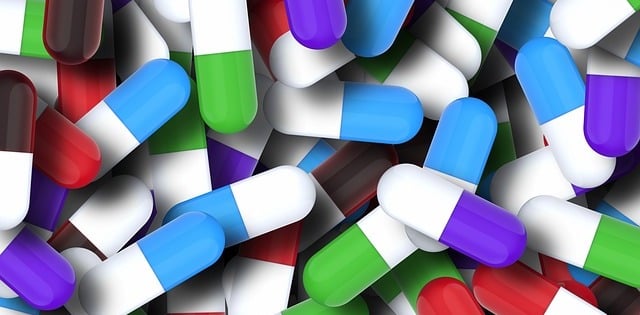
This is very common and can happen for a variety of reasons.
Non-acid or bile reflux (?)
Among the estimated 30% of patients who don’t respond to PPI therapy, a subset may have nonacid reflux, bile reflux, or mixed reflux (acid, weakly acid, weakly alkaline, non-acid).
Generally, PPIs don’t cause non-acid reflux to worsen, but they also won’t adequately treat the condition – so it could independently worsen during PPI therapy.
A gastroenterologist can perform multichannel impedance pH monitoring to properly diagnose non-acid reflux, bile reflux, or mixed reflux conditions.
(PPIs will usually need to be discontinued prior to GI testing because during PPI therapy, reflux merely shifts from being acid to alkaline.)
In most cases, non-acid reflux will NOT explain a perceived worsening of reflux while using PPIs.
Usually, in the event that reflux is worsening while using PPIs – the acid reducing effects of the PPI: (1) lacks effect (due to insufficient dosing and/or improper administration) and/or (2) is being overridden (e.g. poor lifestyle & diet, medications/drugs, etc.).
PPI lacking efficacy… (Reasons)
As was mentioned, some individuals will experience a worsening of reflux conditions while using PPIs if the PPIs fail to sufficiently reduce stomach acid.
Administration timing is often a major problem (patients find it difficult to take PPIs 30-60 minutes before meals). (R)
Insufficient dosing (under-dosed PPIs) coupled with poor lifestyle/dietary choices while on the PPI – can cause the reflux condition to worsen despite the PPI providing some benefit.
Insufficient stomach acid reduction while using PPIs can be chalked up to several things:
PPI treatment specifics
Dosage: Is the PPI sufficiently dosed for the patient? Certain patients may require higher doses than others for adequate reflux relief. For example, some individuals may benefit from 40 mg omeprazole instead of 20 mg – others may require 60 mg omeprazole.
Administration timing: First dose 30-60 minutes before breakfast & second dose: (A) 2+ hours after calories/meals prior to dinner AND (B) 30-60 minutes before dinner. (Only exception to this rule is dexlansoprazole a.k.a. Dexilant – which can be taken anytime).
Once vs. twice daily: Some patients may benefit from administration of PPIs twice daily (in divided doses) – due to the fact that twice-daily dosing provides superior acid reduction over a 24-hour period relative to once-daily dosing. If once-daily dosing is used, the best time to administer the dose is usually in the morning (as this is when acid production tends to be highest).
Duration of PPI therapy: Most individuals won’t derive significant benefit from PPIs for at least 2 days into treatment. Others may not report improvement for several weeks or months into treatment (this all depends on the severity of the reflux at baseline and specific subtype of reflux).
PPI adherence
Daily administration: It is recommended that patients administer PPIs every day to manage reflux symptoms.
Skipping days (?): Skipping days of PPI therapy at random decreases the efficacy of the PPI and interferes with esophageal healing – such that the reflux never gets fully controlled. Additionally, skipping days may cause rebound hyperacidity – inflicting more esophageal damage relative to pre-treatment (i.e. baseline).
Taking extended breaks (?): Some individuals report using PPIs “as needed” rather than taking them daily for a significant period of time. This isn’t an effective strategy due to the fact that PPIs require several days to reach peak acid-reducing effect.
Overpowering of PPI acid reduction
As was mentioned, a subset of individuals will revert back to “old habits” that are known to cause reflux because they perceive the PPI as a complete fix/cure.
While PPIs can occasionally offset bad habits – a PPI’s acid reducing effect can get overpowered by egregious diet/lifestyle choices.
Lifestyle: Eating right before bed; wearing tight clothing; sedentary/lack of exercise; binge eating; sleeping on right side or stomach; weight gain; drinking/smoking; intermittent fasting; skipping breakfast; etc.
Diet: Low pH (acidic) foods/drinks; high calories per meal; large meals (instead of small meals).
Medications, drugs, supplements: Nicotine; alcohol; caffeine; vitamin C (ascorbic acid); iron; certain antibiotics (e.g. doxycycline) – may: (1) increase stomach acidity; (2) alter function of the lower esophageal sphincter; and/or (3) alter GI motility – potentially offsetting the effect of PPIs and increasing reflux.
Essentially what can happen here is that, although the PPI is providing some acid-reducing benefit, the reflux condition remains inadequately treated and might even “compound” over time (causing more esophageal irritation/sensitivity/erosion) – and users could perceive a worsening of reflux symptoms while using PPIs.
Many people think of PPIs as a treatment that fully compensates for any poor lifestyle and diet behaviors that contribute to reflux – but this is not the case. Horrible habits/lifestyle may override the effect of PPIs and worsen reflux. Don’t rely on PPIs as a crutch.
Secondary reflux & exacerbation by medical conditions
In other cases, reflux may be: (1) occurring secondary to an atypical gastrointestinal condition and/or (2) exacerbated by an untreated medical condition (e.g. sleep apnea).
Proper diagnosis and treatment of unmanaged medical conditions should help reduce reflux and increase PPI efficacy.
Atypical causes of reflux (e.g. eosinophilic esophagitis, H. Pylori, functional GI disorder, etc.): Some individuals have reflux occurring as a reaction or symptom of a different medical condition – rather than as a primary disorder. For example: Eosinophilic esophagitis is caused by a non-IgE-mediated allergy to certain foods – and can result in reflux.
Unmanaged medical conditions: Sleep apnea; neuropsychiatric disorders; allergies; etc. Any unmanaged medical condition could potentially increase stomach acid and/or alter GI tract processes to increase reflux severity/frequency.
Esophageal hypersensitivity: Some individuals have a condition known as esophageal hypersensitivity wherein non-painful esophageal stimuli are perceived as being painful – usually due to neuropsychiatric conditions or neurological dysfunction. Neuromodulators such as amitriptyline and gabapentin tend to be required for full benefit.
In above cases, PPIs aren’t the cause of reflux worsening. In fact, PPIs are likely providing some degree of benefit such that the reflux would be significantly worse without PPI therapy.
What’s most likely happening is that the reflux is worsening due to things like poor dietary choices (e.g. acidic foods/drinks), suboptimal lifestyle (e.g. sedentary, eating late at night, etc.), using certain medications/supplements, and/or untreated medical conditions.
For example: Someone might consume a low acid diet, eat small meals, avoid caffeine/alcohol, etc. – then start PPI therapy and think the PPI will offset reflux inducing habits – such that they: eat acidic foods, drink coffee again, consume alcohol, eat large meals, etc.
Another example might be someone with eosinophilic esophagitis who is misdiagnosed with “acid reflux” such that continued consumption of a specific allergenic food group (e.g. dairy) causes worsening of perceived “reflux symptoms” despite PPIs being taken.
Risk factors for PPI not working

Insufficient dosing: Many people taking PPIs who report worsening of reflux are under-dosed. Increasing the dose would cause the PPIs to become more effective.
Improper administration (timing): Many individuals do NOT know about proper PPI administration timing (certain doctors don’t explain this well or emphasize its importance) such that patients are taking PPIs yet they remain almost completely ineffective due to suboptimal administration.
Using other medications or supplements: Using other medications, supplements, or drugs/substances – could cause pharmacokinetic/pharmacodynamic interactions with PPIs. Various meds/supps could also increase: (1) stomach acid (due to low chemical pH/acidic) and/or (2) reflux episodes via modulation of esophageal sphincter/GI function.
Zero adjunct interventions (lifestyle/dietary modifications): Failure to modify diet and lifestyle while taking a PPI might diminish or completely override the effect of the PPI.
Hiatal hernia: A preexisting hiatal hernia and/or enlargement of a hiatal hernia during PPI therapy (such as from binge eating/weight gain) could cause PPIs to become less effective.
Incorrect diagnosis: Some patients who don’t respond to PPIs are incorrectly diagnose with reflux conditions. Often times these individuals have reflux occurring secondary to a different condition (e.g. functional GI disorders, immune-mediated conditions, etc.) which require different forms of treatment (perhaps in addition to the PPI).
Switching PPIs (different relative doses): Sometimes individuals will switch PPIs and use the same dose of the new PPI as the old PPI – without checking whether the dosages are equally potent.
If PPIs don’t worsen reflux, why is reflux worsening while using them?
In rare cases, PPIs can worsen reflux.
However, most individuals will find PPIs beneficial if: (1) diagnosis of reflux is accurate AND (2) PPIs are properly: dosed and administered.
Select users require atypically high doses to get reflux fully under control.
Assuming the dosing is sufficient and the PPIs are being administered properly/optimally – lifestyle/diet changes may be required as an adjunct.
For example, if individuals: eat large meals; overeat; eat late at night/before bed; wear tight clothing; consume acidic foods/drinks; take certain acidic supplements; use certain medications/drugs (affecting esophageal sphincter/GI tract and/or acidity); sleep on the right side or stomach; or have unmanaged medical conditions (e.g. sleep apnea) – reflux may worsen regardless of PPI therapy.
Additionally, users of PPIs should be encouraged to have patience – as PPIs do NOT usually work immediately and may require weeks or sometimes months of proper usage (dose/administration) in conjunction with diet/lifestyle modifications to provide sufficient relief from reflux.
Why some people think PPIs worsen reflux…
There are a few primary ideas that randoms on the internet have for why PPIs worsen reflux.
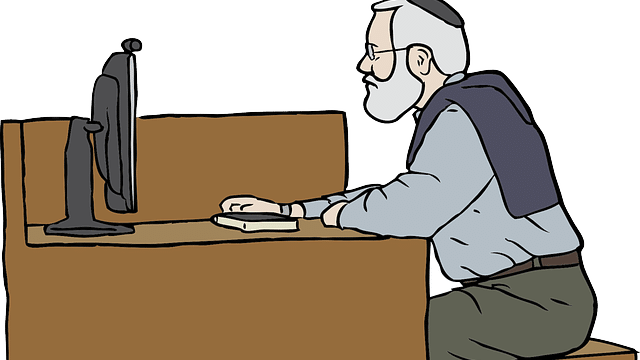
Reflux is really caused by low acid?
A delusional sect of individuals erroneously believe that reflux conditions are really caused by low acid – and that doctors/big pharma: (1) don’t want you to know about it and/or (2) are too stupid to know the truth.
These individuals believe only they were smart enough to find the “real root cause” of reflux – low acid! (Everyone else is too stupid to “do the research”).
As a result, these charlatans promote the regular use of supplements like: ACV (Apple Cider Vinegar); Betaine HCL + Pepsin; probiotics; and whatever else the alternative health guru website that they “researched” recommended.
The thought here is that increasing stomach acid should:
- Normalize esophageal sphincter function: Higher acid believed to keep the LES closed after eating to reduce or cure reflux.
- Improve digestion: Insufficient stomach acid may cause digestive issues and/or other GI conditions (e.g. SIBO) that increase reflux episodes.
- Have a paradoxical or “opposite” effect: Resulting in increased alkalinity as a physiological compensatory reaction to the increased acid load.
LES “relaxing” from PPIs reducing acid?
Some individuals claim that the lower esophageal sphincter (LES) only closes completely when sufficient stomach acid is present – and remains open when stomach acid is lacking.
Specifically, the hypothesis is that the LES detects or senses the presence of stomach acid – and when acid production is sufficiently high (such as after eating) it closes fully to prevent reflux (backflow of stomach contents up the GI tract).
Because PPIs reduce stomach acid, those who promote this hypothesis state that reduced stomach acid from PPIs causes the LES to remain open for prolonged durations after meals – and ultimately increases or exacerbates reflux.
All sounds logical right? The problem with this claim is that there’s ZERO evidence to support it – and its origins remain unknown (despite continuously circulating in alternative health circles).
I did find one study by Duman et al. (2011) in which pantoprazole dose-dependently caused lower esophageal sphincter (LES) relaxation in LES tissue extracted from rats. (R)
Researchers believe that pantoprazole (and possibly other PPIs) probably blocked L-type Ca2+ channels which in turn promoted relaxation of the extracted LES (i.e. LES within a petri dish).
The obvious limitations with this study include: evaluation of LES extracted from rat (rather than evaluating LES function in humans – or even inside living rats) and perhaps pantoprazole dosing (may have been a significantly higher concentration than what’s typically administered for reflux conditions).
Additionally, even if PPIs do somehow promote LES relaxation in a subset of users, the degree of this effect isn’t known – such that it may be extremely modest and thus wouldn’t be able to significantly worsen reflux symptoms.
We must also consider the fact that: (1) there may be a dose-response effect wherein standard, medically-prescribed doses of PPIs are incapable of causing LES relaxation and (2) the specific PPI may matter (certain PPIs may be more likely than others to cause LES relaxation).
Furthermore, even if PPIs cause more LES relaxation in humans, they’ll still lower stomach acid (i.e. gastric pH) such that the damage done to the esophagus may be less significant from more frequent reflux events relative to fewer but higher acidity reflux events (without PPI).
Most “gurus” promoting this hypothesis: (1) emphasize the dangers of PPIs (there are some risks – but most people few/no issues) and (2) simultaneously sell “fixes” (e.g. Betaine HCL + Pepsin supplements; special probiotics; special diet guides; consults; etc.) – despite these having zero scientific support for reflux conditions.
Those with legitimate reflux conditions (e.g. objectively confirmed) will usually experience a worsening of reflux after increasing stomach acid – even if the worsening is not immediately detected.
In some cases, use of supplements like Betaine HCL + Pepsin may cause esophageal damage or esophagitis and further prolong recovery.
Those without legitimate reflux conditions (e.g. inaccurate or self-diagnosis of “reflux”) may report spontaneous improvement while using an array of substances including acidifying agents like Betaine HCL, Apple Cider Vinegar (ACV), etc. – mostly because they never had reflux in the first place.
I should also note that many “gurus” commonly reference the idea that: (A) GERD/reflux tends to become more common with old age & (B) stomach acid production can decrease with age – and thus imply that low stomach acid is the true cause of GERD/acid reflux.
The problem? Correlation does NOT equal causation.
Esophageal sphincter function can worsen with age – but there are many possible reasons for this.
Many people gain weight and become overweight/obese with age. Diet may become more acidic with age.
Stress and other medical issues increase with age. Use of various medications (perhaps acidic ones) increase with age.
And the kicker? Yakabi et al. (2010): “Some studies indicated an increase in gastric acid secretion in old people compared with young people. Consequently, the decrease in acid secretion according to aging is now thought to be the result of H. Pylori infection and not the result of physiological aging.” (R)
Notes
- Increasing stomach acid has a niche therapeutic purpose – such as in the treatment of achlorhydria and hypochlorhydria, which are easily diagnosed with gastric pH monitoring.
- And no, the therapeutic benefit from increasing stomach acid in hypochlorhydria is not confirmed to be from signaling the LES to close.
- I also want to emphasize that age-related stomach acid production can be highly individualized.
- Some might experience a reduction in stomach acid with age – whereas others might have an increase in stomach acid with age.
- The research does NOT confirm that aging causes a reduction in stomach acid though – like many “gurus” suggest.
Alkaline/Acid Ash hypothesis
An unproven theory that gained traction over half a century ago that posits foods/drinks, after being digested, leave either an acidic or alkaline residue in the body based on mineral composition.
Lemons are thought to generate an alkaline residue post-digestion – and therefore it helps promote alkalinity within the body (which could reverse acid reflux).
Protein and grains are thought to generate an acidic residue which causes leaching of calcium from the musculoskeletal system. (R)
This theory has never been substantiated with any credible scientific evidence.
It’s essentially something that someone thought sounded reasonable – and thus promoted it as a way to improve health.
What about reflux worsening from PPI withdrawal?
A worsening of reflux following PPI dosage reduction (i.e. tapering) or withdrawal is NOT the same as the PPIs actually causing worse reflux.
It is true that reflux can significantly worsen while discontinuing PPIs due to the well-documented phenomenon of “rebound hyperacidity” – wherein a physiological compensatory reaction (proton-pump overactivation) occurs (contra to proton-pump inhibition during PPI therapy).
As a result, the overactive proton-pumps post-PPI therapy produce an excessive amount of stomach acid for a duration following PPI discontinuation – which can cause a massive worsening of reflux if one doesn’t properly taper the dosage OR utilize adjunct therapies.
For this reason, most medical doctors recommend tapering off of PPIs gradually (very slowly) and utilizing less potent acid-reducing adjuncts (e.g. H2 blockers) to serve as a “bridge” between PPI therapy and homeostasis (no meds).
Other interventions may include alginates (e.g. Gaviscon Advance) to help block acid reflux in withdrawal.
PPIs sometimes working and other times not working?
In some cases, individuals may report PPIs working on certain days but not on others.
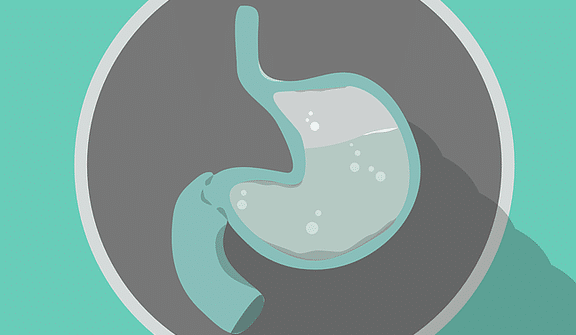
This is commonly due to disparities in: (1) diet & lifestyle on these specific days (e.g. eating large meals or drinking coffee and/or (2) PPI administration specifics (e.g. failing to take the PPI 30-60 minutes before meals) – on days the PPI “didn’t work.”
Other individuals may administer PPIs sporadically (e.g. every day for a week – then stop for a few days) and report fluctuations in the severity of reflux.
Individuals may oscillate between periods of acid reduction (with the PPI) followed by periods of rebound hyperacidity (stopping for a few days).
What’s more, certain people may erroneously suspect that the PPI stopped working on certain days due to its effect being overpowered by lifestyle/diet factors (e.g. large meals, coffee, etc.) – and then stop taking it (and experience a worsening of reflux due to rebound hyperacidity which can last weeks).
Some of these people may continue thinking the PPI is to blame for the worsening of reflux – when in reality it isn’t.
Others may oscillate between using the PPI and stopping the PPI (thinking it stopped working) – such that they never achieve complete symptomatic relief.
If PPIs truly worsened acid reflux…
In rare cases, PPIs could (theoretically) worsen reflux – and I’ve discussed these scenarios above.
However, most of the time, even if the reflux is non-acidic, PPIs won’t worsen it.
In other words, even if the PPIs aren’t a useful treatment for whatever condition a person is dealing with – they won’t worsen it (they’ll just have no therapeutic effect).
If you’re of the mindset that PPIs always or usually worsen reflux – you may want to ask a few questions…
- Why are they significantly more effective than a placebo control?
- Why do so many people find PPIs beneficial?
- Why are there rave reviews for PPIs on Amazon?
- Do you think every patient is receiving the proper PPI dosage for his/her condition?
- Do you think reflux can worsen irrespective of PPIs? (e.g. Poor diet/lifestyle choices overpowering the PPI?)
- Do you think it’s possible some users who experience a worsening of reflux with PPIs aren’t administering them properly or consistently?
The “gurus” recommending alternative interventions for reflux conditions generally have no strong evidence to support their recommendations (such as from adequately sized, double-blinded, placebo-controlled, randomized, trials).
PPIs are backed by strong science and are currently the best option for reflux conditions (ahead of H2 blockers).
Recommendations for using PPIs
My top recommendation for using PPIs is to discuss proper dosing/administration with a gastroenterologist.
Evaluate concomitant medications to ensure that nothing is interacting with the PPI or increasing acidity/reflux (such as to reduce the PPIs efficacy).
- Rule out other causes of reflux (e.g. eosinophilic esophagitis, H. Pylori, functional GI disorders, etc.)
- Morning PPI administration (immediately after waking)
- Eat breakfast 30-60 minutes after morning PPI (with sufficient protein)
- Administer second dose of PPI on an empty stomach before dinner (2 hours after prior calorie intake & 30-60 minutes before dinner)
- Consider combining with alginates for additional effect (e.g. Gaviscon Advance)
- Be consistent with PPI administration (don’t skip days or “take breaks” – as this can reverse healing progress)
- Evaluate medications/supplements to ensure they don’t interfere with PPI
- Don’t expect quick results (may take months to notice improvement)
- Make lifestyle and dietary modifications to further reduce reflux (don’t assume the PPI will “cure” everything by itself if you have horrible habits)
- Finish all calories before 7 PM
- Eat smaller meals (rather than large ones)
- Eat majority of calories in the morning
- Don’t lay down for at least 3 hours after eating
- Sleep on left side
- Use “bed risers” to elevate head of bed (6 inches)
- Sleep on left side only
- Eat a “low acid” diet
- Track and restrict calories (for weight loss)
How can you tell if PPIs make reflux worse?
If you are experiencing subjective worsening of reflux with PPIs, it’s possible that “reflux” is NOT the correct diagnosis.
Consider getting a second opinion from a gastroenterologist.
Note: If you self-diagnosed, this is unacceptable. Consult a gastroenterologist to determine whether you actually have reflux and not a different condition like H. Pylori or functional dyspepsia.
Endoscopy and pH monitoring should be done at baseline (pre-PPI) AND during PPI therapy with sufficiently-dosed and properly-administered PPIs.
Gastroenterologists can compare the severity/frequency of reflux at baseline relative to while using PPIs and determine whether the PPI is objectively worsening reflux.
Should you use PPIs if they are worsening your reflux?
If you know for an absolute fact that PPIs are worsening your reflux – then obviously not… this is common sense.
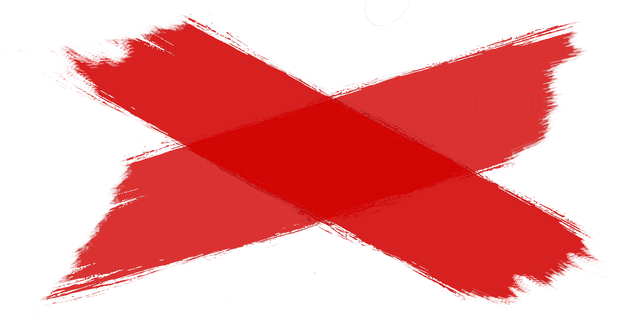
However, most people who: (1) have legitimate reflux conditions and/or (2) use PPIs properly – while making appropriate dietary/lifestyle adjustments – will NOT get worse while using PPIs.
Those who use PPIs without diagnostic clarity (e.g. endoscopy) should be encouraged to seek diagnostic clarity before continuing PPIs – particularly if zero improvement occurs with prolonged usage (e.g. within 1-3 months).
Additionally, a subset of individuals who use PPIs improperly (e.g. administration: late in the day instead of morning and/or immediately before or after eating – rather than 30-60 minutes before meals; etc.) may not get any benefit and thus may perceive reflux as worsening while using these substances.
Lastly, other individuals may assume PPIs cancel out all bad habits (e.g. overeating, late-night eating before bed, drinking acidic beverages, caffeine/alcohol intake, etc.) – and could experience a worsening of a reflux condition due to a reflux-inducing diet/lifestyle overpowering the acid reduction of PPIs.
Have you experienced worse reflux on PPIs?
- Do you have diagnostic clarity from a GI doctor? (What tests were performed?)
- Do you administer PPIs properly?
- Are you consistent in PPI administration?
- Have you tried Dexlansoprazole (Dexilant)? (This is easier to use for most people since it doesn’t require timing optimization – it can be administered before/during/after meals without losing effect).
- Why do you think your reflux worsened on PPIs?
- Do you use other medications along with PPIs?
- Have you altered your lifestyle/diet while using PPIs?
- When did the worsening of reflux start on PPIs?